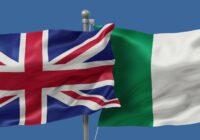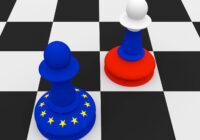The European Union and its member states have presented an approach to the ongoing conflict in Yemen that has lacked both coordination and coherence. The situation in Yemen, which was the poorest Arab country already before the eruption of a civil war in 2014, has been described by the Secretary General of the United Nations António Guterres as the worst humanitarian crisis in the world. In the face of this, the EU and its national governments have too often proved unable or unwilling to make a positive impact on the developments in Yemen. Some EU members, in fact, have been going in the opposite direction.
The lack of a common European position on Yemen could be observed after September 14, 2019, when Aramco oil facilities in Saudi Arabia were hit by airstrikes, forcing the kingdom to cut its oil production by more than a half. The attacks were claimed by the Houthi rebels who had seized the capital Sanaa in 2014.
Yemen Could Be Hit Hard by the Coronavirus
Although the Houthis had hit Saudi territory several times in the past, Riyadh insisted that the Aramco attacks were launched from the north, implicitly blaming either Iran or Iraqi militias backed by Tehran. Iran provides the Houthis with support, although claims that the group is an Iranian proxy are far-fetched. An investigation carried out on behalf of the United Nations Security Council concluded that the attacks had probably not been launched from Yemen.
On the one hand, France and Britain reacted to the attacks (whose authorship was even more uncertain at that moment) with very similar statements, highlighting their commitment to support the security of Saudi Arabia. On the other hand, the German Foreign Ministry and the European External Action Service (the diplomatic arm of the EU) emphasized the need for de-escalation and made no reference to Saudi security.
The Embargo That Never Was
The different wording of these statements following the Aramco attacks could be considered anecdotic if it did not reflect a more profound divergence of views among EU members regarding the conflict in Yemen. France, the United Kingdom, Italy and Spain have continued to sell weapons to Saudi Arabia despite its blatant violation of international humanitarian law and human rights in Yemen. According to the Armed Conflict Location and Event Data project, direct targeting by the Saudi-led coalition has resulted in more than 8,000 civilian deaths since 2015.
Germany is the only EU heavyweight that has banned weapons sales to Saudi Arabia, even though Berlin has exceptionally approved the export of €400 million ($449 million) in weapons to Saudi Arabia in March last year. Denmark, Finland and the Netherlands are some of the countries that have taken a similar position. It must be noted, however, that the economic value of weapons sales to Riyadh differs greatly from country to country. Saudi Arabia represents Britain’s biggest market for weapons exports and the third-largest for France. On the contrary, none of the above-mentioned countries implementing a ban has Saudi Arabia among its top-three buyers of military equipment.
An EU-wide ban on weapons sales to Saudi Arabia is not only extremely unlikely, it would also have a limited impact if implemented. The United States remains by far the major arms supplier to Saudi Arabia, providing 68% of the weapons the kingdom has bought since 2014. Even so, an EU-wide ban on weapons sales to Riyadh is one of the strongest policies the EU could enforce. The share of Saudi weapons imports originating from EU countries is not the sole indicator of its importance for Riyadh. Switching from one weapons supplier to another takes money, time and may lead to incompatibilities in the weapons systems.
EU countries exporting weapons to Saudi Arabia are acting against the EU Council Common Position on Arms Exports approved in 2008. Article 2 of the Common Position establishes that EU member states must deny an export license for military technology that “might be used in the commission of serious violations of international humanitarian law.” Adding to this, the EU’s former foreign policy chief, Federica Mogherini, used to speak strongly against military solutions for Yemen. Mogherini’s successor, Josep Borrell, has less credibility to take such a position since he was Spain’s foreign minister when the Socialist government reversed its initial ban on weapon sales to Saudi Arabia.
At the end, however, national EU governments retain sovereignty in the management of arms exports and thus often contradict the EU Common Policy. The European Parliament has called for a sanctions committee to be implemented in order to monitor weapons sales, but the decision is non-binding. Actually, it is not unusual to see members of the European Parliament voting in favor of severing support to the Saudi-led coalition in Yemen while their own parties implement a diametrically opposite policy at the national level.
The Rhetoric-Reality Gap
This notwithstanding, it would be a mistake to think that the European Union has not been able to formulate a coordinated and coherent strategy regarding Yemen only because of the dissimilar positions of its member states regarding weapons exports. The low priority given to formulating and eventually supporting such a policy has been equally important. The volume of aid Yemen has received from the European Union is proof of its limited importance to EU leaders.
Between 2015 and 2018 — the last year for which reliable data is available — Yemen has been allocated €2.33 billion in aid from EU institutions and member countries. During these same four years, Afghanistan and Morocco have received more than €5 billion each from the European Union, the largest global contributor of humanitarian aid.
It is true that the effective delivery of humanitarian assistance is always complicated when a country is involved in a civil war, and Yemen is no exception. Actually, there are reasons to fear the Houthis might be diverting aid to non-humanitarian purposes. However, it would be naïve to assume that this is the main reason for the low levels of humanitarian aid Yemen has received from the European Union and its member countries. With a slightly smaller population, war-ravaged Syria has received three times as much humanitarian aid as Yemen between 2015 and 2018.
The explanation for this reality has more to do with the fact that the war in Yemen does not carry the threat of a refugee crisis for the European Union. As surprising as it may seem, more than 160,000 migrants, mostly from Ethiopia and Somalia, arrived in Yemen in 2018. Once there, they often join Yemenis in trying to reach Saudi Arabia in the search of a better life. Riyadh, however, exerts strict controls on migration on the Saudi-Yemeni border, having built a fence along it during the early 2000s.
Marissa Quie and Hameed Hakimi argue that in the European Union, aid has become “a tool to stem what electorates perceive to be a ‘tidal wave’ of migration.” This goes a long way into explaining why Libya — through an Italy-Libya deal supported by the EU — Morocco, Turkey or Afghanistan, important points of rigin or transit for migrants aiming to reach Europe, are seen as a higher priority than Yemen.
The incapacity of the European Union to reach and implement a comprehensive strategy regarding Yemen damages its soft-power projection in the world. Even though the EU stance on the Yemeni conflict is only one of many aspects leading to the questioning of Europe’s soft power, it does not always have to be this way. Europe proved this with its constructive role in the negotiation of the Iran nuclear deal, regardless of the fact that the EU was far less successful in finding a solution to the US exit from the deal in 2018.
The European Union rhetorically upholds a certain set of norms that are presumably the result of a certain European identity. These include the defense of human rights, the respect of international regimes — the 2008 EU Common Position and the 2014 Arms Trade Treaty among them — and the responsibility to help avert humanitarian crisis through aid. Nevertheless, as Mai’a K. Davis Cross explains, “identity, image, policies and Public Diplomacy are all interrelated.” EU public diplomacy in Yemen cannot work as long as its policies, and those of its member states, convey an image at odds with the identity the European Union claims as its own.
The views expressed in this article are the author’s own and do not necessarily reflect Fair Observer’s editorial policy.
Support Fair Observer
We rely on your support for our independence, diversity and quality.
For more than 10 years, Fair Observer has been free, fair and independent. No billionaire owns us, no advertisers control us. We are a reader-supported nonprofit. Unlike many other publications, we keep our content free for readers regardless of where they live or whether they can afford to pay. We have no paywalls and no ads.
In the post-truth era of fake news, echo chambers and filter bubbles, we publish a plurality of perspectives from around the world. Anyone can publish with us, but everyone goes through a rigorous editorial process. So, you get fact-checked, well-reasoned content instead of noise.
We publish 2,500+ voices from 90+ countries. We also conduct education and training programs
on subjects ranging from digital media and journalism to writing and critical thinking. This
doesn’t come cheap. Servers, editors, trainers and web developers cost
money.
Please consider supporting us on a regular basis as a recurring donor or a
sustaining member.
Will you support FO’s journalism?
We rely on your support for our independence, diversity and quality.






